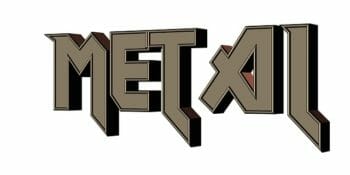Colloquial Spanish Course – Talking about Movies in Spanish
In this Spanish lesson we are going to practice talking about Movies in Spanish. First we will learn some relevant vocabulary and then see if you can follow a short audio conversation in Spanish. The transcript to the audio will be given at the end of the post but please try not to look at it until you have tried playing and understanding the audio a few times.
Talking about Movies in Spanish:
Movie / film: la película
Cinema / movie theater: el cine
Audience: la audiencia
Drama: el drama
Foreign movie: la película extranjera
Independent film: cine independiente
Black and white: blanco y negro
Director: el director
Producer: el productor
Celebrity: el famoso / la famosa
Actor: el actor
Actress: la actriz
Action: la acción
Adventure: aventuras
Animation: animación
Cartoons: los dibujos animados
Comedy: la comedia
Black comedy: la comedia negra
Documentary: el documental
Horror: terror
Thriller: el thriller
Suspense: suspense
Mystery: misterio
Family movie: la película para todos los públicos
Romance: la película romántica
Science-fiction: ciencia ficción
Fantasy: fantasía
Musical: el musical
DVD: El DVD (de-uve-de)
3D: 3D (tres-de)
Subtitles: los subtítulos
Based on a true story: basado/a en una historia real
Character: el personaje
Star: el/la protagonista
Script writer: el guionista
Script: el guión
Plot: la trama
Special effects: los efectos especiales
Sequel: la secuela
Prequel: la precuela
Now play the audio to listen a conversation. Can you understand what is being said? Play the audio a few times before you look at the transcript. Don’t worry if you don’t understand every single thing the two people are saying. Try to catch whichever words you can and then try to piece things together to work out what is being said.
(Play the audio a few times before you scroll down and look at the transcript)
Transcript:
David: Hola Olivia. ¿Cómo estás?
Olivia: Hola David. Estoy bien. Acabo de salir del cine. ¡Qué perdida de tiempo! La película era malísima.
David: ¡Siempre lo son hoy en día!
Olivia: Supongo que nos estamos haciendo mayores. Pero creo que las películas eran mucho mejores cuando éramos niños.
David: Supongo que es normal pensar eso. Pero las películas son para todas las edades. Debería haber algo que disfrutáramos.
Olivia: Las películas para todos los públicos solían ser mucho mejores hace treinta años. Ahora tenemos películas en 3D y muchas opciones con canales de streaming como Netflix. Pero aunque hay millones de películas, nunca encuentro ninguna que me guste.
David: Los efectos especiales son asombrosos.
Olivia: ¡Pero los guiones y las tramas son una basura!
David: No creo que les falte talento a los actores y a las actrices.
Olivia: No, son los guionistas.
David: Quizás deberíamos ver más cine independiente. Películas francesas. Películas japonesas. Películas escandinavas. No sé.
Olivia: No me gustan las películas subtituladas. Siempre me distrae el texto y no puedo leer y mirar al mismo tiempo.
David: Sin embargo, los documentales modernos son increíbles. ¿No te parece?
Olivia: Oh, sí. Tienes razón. Ahora hay muchos documentales muy interesantes y emocionantes. Es cierto, han mejorado. Recuerdo que los documentales de antes eran muy aburridos.
David: Estoy de acuerdo con tus opiniones sobre las películas modernas. ¡Pero está claro que nos estamos haciendo mayores!
So, how did you get on? How much did you understand of the listening? Please let me know in the comments section below…
Don’t worry if you didn’t understand that much, keep reviewing the vocabulary and phrases and you will soon be up to speed and ready for the next lesson in this course. See you next time!
Posteado en Spanish Articles (Facebook)




